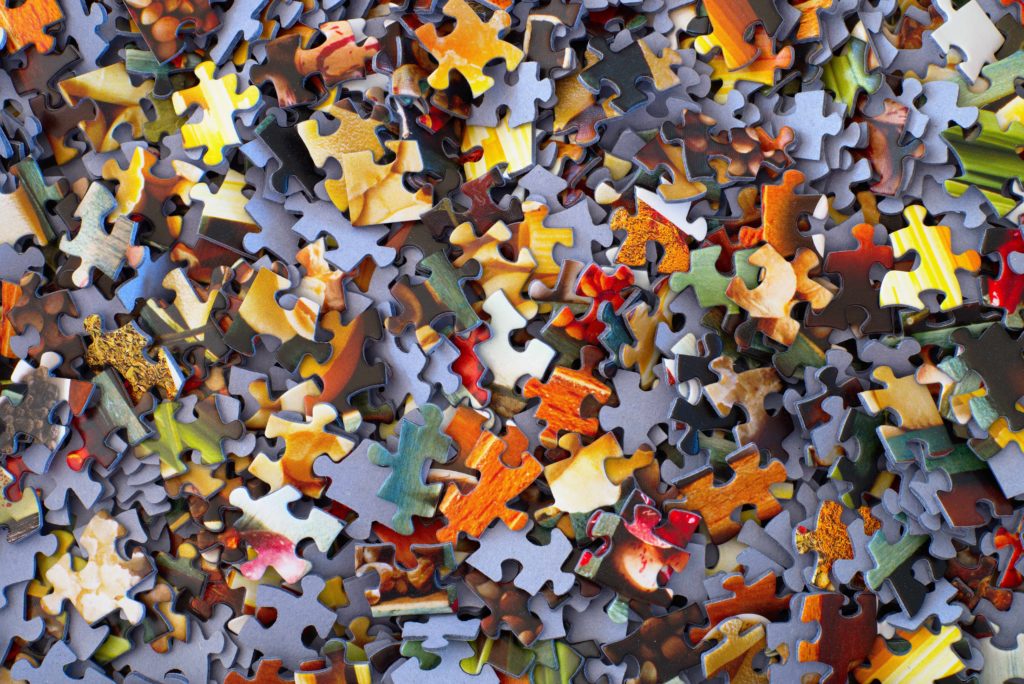I was recently the first guest on a new podcast called Techno-Biotic (disclaimer: my wife Laura is one of the co-hosts). After the podcast aired, someone wrote in to ask if all the talk about the Digital Era and the 4th Industrial Revolution was, in fact, just hype.
While I answered the question on the podcast’s blog, it belies a bigger misunderstanding: that the Digital Era is merely part of the continuing evolution that began with the beginning of the Industrial Revolution.
While I recognize that this term — the 4th Industrial Revolution — is now part of the popular lexicon, I believe it is misguided and risks desensitizing people to the true magnitude of what is happening.
We called it the Industrial Revolution because it was just that — a revolution in the way the world worked. Calling what is happening now the 4th Industrial Revolution is like saying this is version 4.0 of that on-going transition — the same thing, just a bit different.
But what is really happening is, in fact, another revolution — with all the massive impact and gravitas that implies. This revolution is not version 4.0 of what we, and our parents, and our grandparents, have been living through, but rather the upheaval of all that we know.
This is something entirely new and different. And what it is leading to is a period of chaos.
The big question, therefore, is how you can survive and find opportunity during this revolution.
The Big Idea: The Chaos Age
Several years ago, as all of these ideas were beginning to form in my head, I had the opportunity to meet Rita J. King, co-founder of an organization called Science House.
She had a huge impact on my view of what was happening, and continues to inform my work today. As she saw it, we are in what she calls The Imagination Age— a time in which, as we exit the Industrial Age and proceed towards what she calls the Intelligence Era, we are free to imagine our future.
The reason that we needed this Imagination Age is because she realized we had a problem, that we were all suffering from the same fate: “Industrial Era thinking being applied to Intelligence Era problems.”
It was a compelling idea. The Industrial Era had dictated how we functioned, worked, and even how we thought about problems. This new era, however, would demand entirely new ways of thinking and working.
As I thought about it more deeply, however, I realized something else: we can also call this intervening period — the one we are now living through — The Chaos Age.
Let’s face it, when everything you know about how the world works is changing, seemingly overnight, the overwhelming feeling you’re left with is uncertainty.
However, it’s more than just a feeling that everything is changing. I believe, in fact, that almost everything we know about how the world operates will change in meaningful ways in the very near future. We can already see it happening all around us.
The result is undeniable. We are entering a period in which the prevailing sentiment will be uncertainty, which will result in both real and perceived chaos.
As we seek to find our way in this new era, therefore, the difference will be in how we respond.
The Impact: Chaos Always Wins
There are a few things that stand out about my childhood. One of them was the time that in the second grade I had to go to a new school. Everything about it was different. So, what did I do? I turned inward, keeping to myself, and focusing on this little notebook I had brought with me.
The other was the many times that I would come home to the room that I shared with my brother, only to find it in complete disarray. Being the hyper-organized person I have always been, it was impossible to do anything else until I had restored order to the room.
I’m sure many of you have had similar experiences. There’s good reason — these are typical, human responses to uncertainty and chaos.
In times of uncertainty, we are biologically programmed to reduce our risk profile, turn inward, and to become protective. Likewise, a chaotic situation breeds uncertainty, so our first reaction is to restore order to that chaos, if we can.
It is important to understand these very human characteristics because as we enter a time filled with uncertainty and chaos, most of us will respond instinctively.
Rather than stepping forward into this brave new world with hope and excitement, we will fruitlessly attempt to put the genie back in the bottle and, failing that, will turn inward and hunker down hoping we can simply ride out the storm.
That’s what most people are going to do — it’s what most people are doing right now.
That instinctual and usual reaction will create massive opportunities for those that understand what is happening and overcome their own instincts and, instead, step boldly into this future.
Don’t get me wrong. It’s going to be a lot tougher than it sounds.
As the level of uncertainty and chaos increases over time, our instinctual and emotional responses will become harder and harder to overcome.
The trick will be to get hold of yourself now when things are just getting started and to train yourself to look at every disruption, every change, and every transformation as an opportunity and glimpse of the future, rather than the destruction of the past.
The Next Step: Discover Your Opportunities
As I do in each issue of Your Digital Future, I want to leave you with an exercise to help cement these ideas and put them into practice.
For this one, I’d like you to get your most beloved family game (e.g. Monopoly, Pictionary, etc.) and put the game board on a table.
Now, dump all of the pieces or elements of the game onto the board. No order or stacks. Just dump it all on top of the board (don’t worry, you can make your kids pick it up!).
So, here’s the exercise: you must forget everything you know about the rules of the game and reimagine the game using just the board and pieces. You can add a few things, if you like, but the result needs to be something entirely different — no minor rule changes allowed!
You may be thinking that this is more of a creativity exercise — and you’d be right. A huge part of finding opportunity in chaos will be the ability to look at things you’ve seen a million times with a fresh perspective. You must be able to apply creativity, imagination, and empathy to them to find new pathways into the future.
So, dive in and enjoy the process of creating something brand-new from what was already there — and let me know what you came up with!
Tag/s:Digital EraIndustrial Ageindustrial revolution





